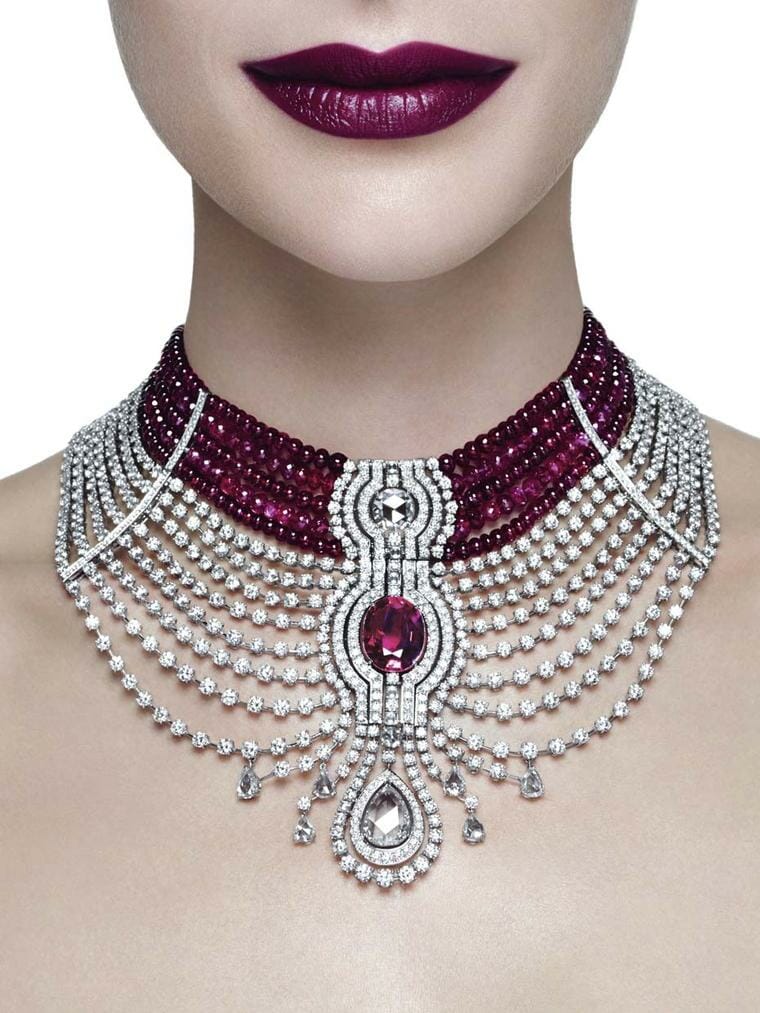Welcome back to the Diamonds Hatton Garden blog where we bring you the latest from our Hatton Garden Jewellers. In the start of an ongoing series, we look at this month’s birthstone for July: the delicious, boldly coloured and beautiful Ruby.
Regarded as ancient civilisations as the ‘king of gems’ Rubies are, in certain cultures, believed to protect the wearer from evil and bring good luck. Nowadays, rubies are equally cherished yet their meaning has changed and they are often seen as symbols for love, passion and longevity.
Where are rubies found?
Historically, rubies have also been mined in Thailand, in the Pailin and Samlout District of Cambodia, as well as in Afghanistan, Australia, Brazil, Colombia, India, Namibia, Japan, and Scotland; after the Second World War ruby deposits were found in Madagascar, Nepal, Pakistan, Tajikistan, Tanzania, and Vietnam.
July has a variety of birthstones (Sapphire, Onyx, Carnelian, and Turquoise) but the most well-known or recognisable is the rich, red ruby. Scientists have traced the origins of the formation of rubies to around 50 million years ago and it is thought that, much like diamonds, rubies began to form under the huge pressures involved with the shifting of mantel in the Earth’s crust. From royal crowns to jaw-dropping necklaces the ornate and deeply coloured ruby has been used for centuries in a beautiful variety of jewellery.
What do rubies symbolise?
Often associated with wealth, power and prosperity many cultures have different interpretations as to the meaning of rubies. It is generally accepted, however, that the deep red colour is associated with love, passion and burning emotions making them the ideal gift of love to a partner. In indigenous cultures ancient rubies were sort as it was believed that the gemstones contained precious drops of Mother Earth’s blood thus making them believe to hold the key to eternal life itself. In other civilisations fables told that rubies were sapphires that had been left in the ground too long and their mystical properties were said to predict misfortune should their colour turn to a dark red.
Traditionally rubies have been used as gifts for milestone anniversaries, most notably the 15th and 40th wedding anniversary. Eastern cultures such as China and India used to lay rubies beneath the foundation of buildings in order to attract luck and wealth and noblemen in ancient China would often set rubies in ornate armour once more in the attempt to bring good luck.
One of the most famous rubies is housed in the The National Museum of Natural History in the USA. Donated by philanthropist Peter Buck, the gemstone was discovered in Mogok, a province in Myanmar, and weighs 23-carats. However, the most expensive ruby ever sold is called the Sunrise Ruby which was bought by an anonymous bidder in 2015 for $30 million. Excluding diamonds, both fancy coloured diamonds and white diamonds, the Sunrise Ruby is the most expensive gemstone ever sold.
Star rubies, along with all other forms of ruby, is one of the most valuable types of coloured gemstones available today. In fact, large rubies are actually rarer and more valuable than diamonds of comparable size.
How are rubies valued?
Much like other gemstones, rubies are valued based on their clarity, colour, cut and carat weight. The most valuable rubies, due to their burning red fire, are of Burmese origin but, in recent years, both Mozambican and Malagasy have been cherished due to their quality. As with loose diamonds, large rubies with a fierce colour and clarity are incredibly rare – thus increasing their value. As such, the larger the ruby the larger the price.
Diamond and ruby jewellery is a classic, timeless combination that truly is a splendid acquisition – a cherished item to pass on through generations. Whether you wish for a delicate ruby necklace or a set of earrings, Diamonds Hatton Garden can assist you with your bespoke requirements. Our experienced workshop have produced exquisite diamond and ruby jewellery tailored made to each client. For more information and to book your personal consultation contact our team on +44 (0) 7951 060238 or via
info@diamondshg.co.uk

